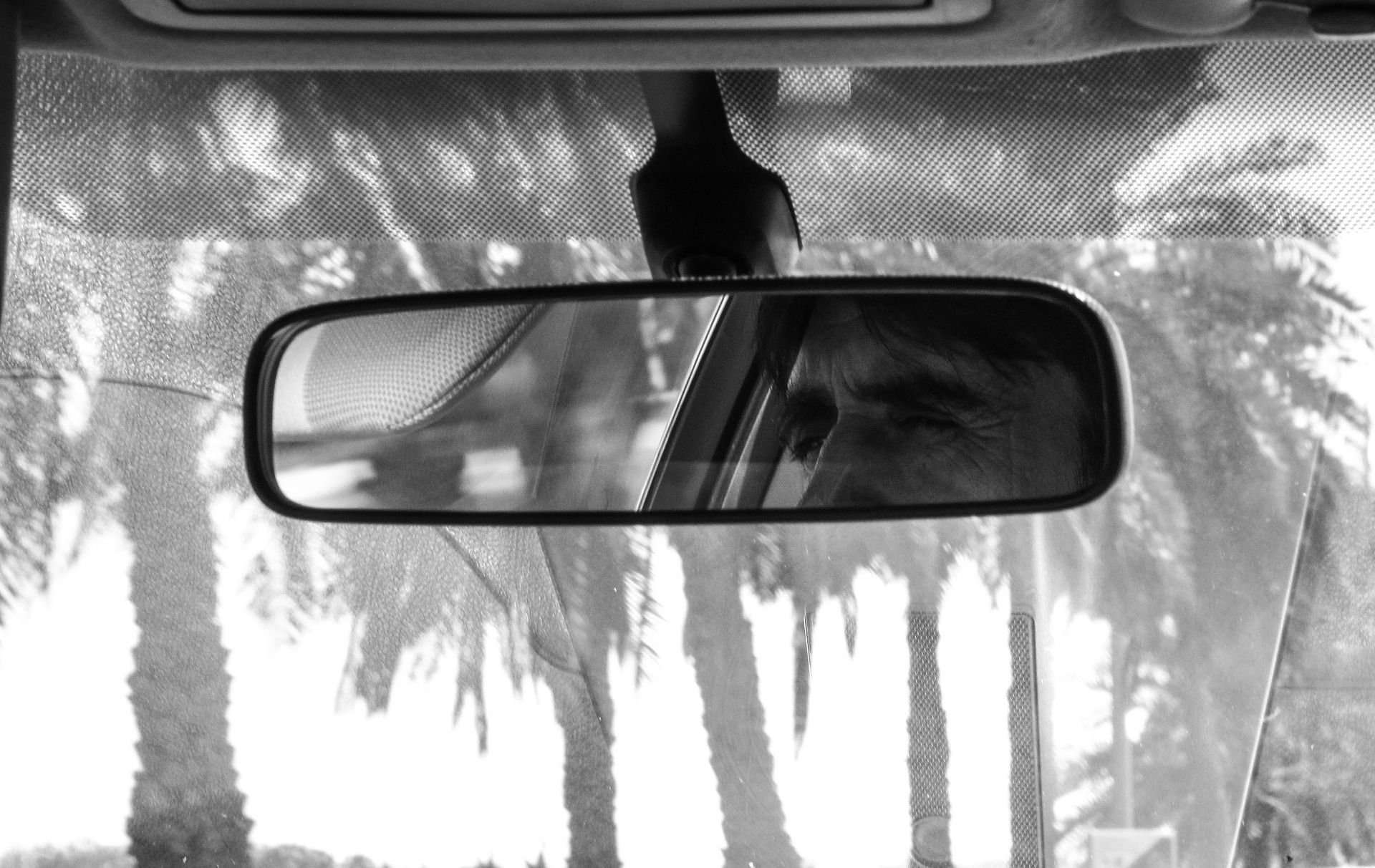BY FLORENCE BETT
Out of the entr’acte between sunset and darkness, when most of Nairobi is hunkered between the inevitable mature of what-now to what-next, I slink into the back seat of an Uber.
It’s a Thursday, and I’m headed to Century Cinemax at the Junction on Ngong Road to catch a movie with GB. They have them on discounts on Thursdays – at 250 bob a movie – so the cinema is always packed with a different mix of crowd, depending on what’s showing that day.
You’ll bump into the bohemian college types, knackered mums with their under-10 kids, the odd lone white dude or sometimes an eccentric gang of them, West Africans with their strong facial features, a family of Chinese (always with their two kids, a boy and a girl, plus their grandmother), chicks (never chaps) on a girls-night-out or young couples like GB and I that are seeking to add some youthful spice into this sucker called marriage.
And marriage can do that to you, suck the colour out of who you and what you love to do. That’s why it’s important that you first discover yourself before getting in there – marriage becomes unfair and harsh to those who don’t. Because you’ll ultimately discover yourself someday, sometime soon in the future and you may become somebody different from who your partner married. Then resentment broods and you’ll grow apart instead of growing together. And you won’t be happy with the life you’ve chosen. (Jesus. I don’t know where that came from. Haaha.)
That evening, GB and I watched this movie called The Hitman’s Bodyguard. You seen it? It’s witty and entertaining; the cinema hall was full house and full of laughs that day. It’s this movie with Ryan Ryenolds and Samuel L. Jackson. Sorta like The Transporter and 24 but will the seriousness taken out of it.
So I call the Uber and it arrives outside my office building in less than five minutes. Let’s call the driver Sam, for the purpose of this conversation. Now would also be a good time to tell you that he mostly spoke in switch of sheng and a brand of street English that he was surprisingly able to navigate with ease. I envy folk like him that are able to do that. Also, I’ve reworded his side of the convo for this story – I’ve lost his voice and some of his personality in the process.
Sam is driving a white Fielder, the hallmark of a hustler. Inside, the car has the musky smell of old cigarettes, cheap air freshener and blue-collar grit. He has a mix CD playing in low volume. I sit back left and give Sam a quick look-over. He’s wearing a brown plaid shirt in short-sleeves and a beret that hangs low on his head above his eyes. Like Donnell Jones. His words are underlined with a distant Kuyo accent, one of those stubborn ones that refuse to go away.
He welcomes me in with plenty of enthusiasm, I tell him Junction and he starts the trip. For a brief moment, our eyes meet in the rear-view mirror. I shiver and look out the window.
You must know how these Uber drivers are and how they work very hard to maintain their 4.75-star-average-rating; engaging you in conversation and going to great lengths to make you feel comfortable. First they ask you how you are, then how your day was then there’s some space of awkward silence as they riff for more pointers from what you’ve already said as they offer you mints or a bottle of water. It’s all good, and I really appreciate the effort. But I’m OK with sitting in silence. I am, really.
I mean, my job is to talk to people; I ask to meet them, sit down with them across a table or at their workspace, listen to them and ask questions and curiously dig into their lives to write their stories. It’s what I do on most days so in the evening, when I’m in the ride headed out, I just want to sit in silence and look out the window, to let my bloody head decompress. But most Uber drivers won’t let you. God, no. Why would they when their precious 4.75-star rating is hanging in the balance of engaging you all the way to your destination? And I’ve mastered the Code of Urban Etiquette by heart; Rule #65 says to chat back when chatted to.
So after he’s given me the usual how-was-your-day quick fires, Sam and I get into small talk (good Lord.) First we talk about the weather, about how unseasonable it has been last July and August with the hot days and the unpredictable patterns of rain. “Yeah, yeah,” I say, “That was really heavy rain last evening. Really heavy. And at five in the evening, when everybody is already on the road! Gosh, that got us by surprise. It’s interesting that it hasn’t rained again today, it was actually very hot.”
He agrees with me.
Then we talk about politics then about traffic. By this time we’re out of tao and are approaching Sagret Hotel. Sam says, “If someone that side of Nairobi Hospital calls me right now, I won’t go. No way! I’ll cancel the request. You can take almost an hour in traffic waiting to get into the Hurlingham roundabout. It’s tiring.”
“Don’t you guys make money from sitting in traffic?”
“We do,” Sam says, “but it’s two bob a minute. So that’s like what, 120 bob an hour? It’s not worth it. I can easily do three short trips in that time and make more money, instead of waiting in traffic.”
We drive on for a bit in silence.
I ask, “So how do you take care of the money you’ve made daily? Do you pay yourself a salary at the end of the month?
“What salary?”
We chuckle.
“So if you make money today you send it all to the car owner?
“No…” Sam hesitates for a second and shakes his head. “No, no I don’t.”
“Oh, the car is yours?”
“Yeah. The car is mine.”
“Oh, so whatever you make you keep in your pocket and use whatever you need for the car from there?”
“Well… Yes…”
I feign naivety and press on. “Doesn’t that mean that you can’t really tell how much you’ve made that month? Do you send the extra to a different account, like maybe to your savings?”
Sam laughs out aloud. “No, no. everything I make sits in one account. But I’m doing it differently now – I send all my money to my wife. She’s the one that handles all our money and takes care of whatever she needs to in the house with the money I’ve sent her.”
“What?!”
Sam scoffs as he drives past Road House Grill on Dennis Pritt Road. “Yeah, my wife knows what I make and she keeps it.”
“What if you need cash for, I don’t know, your stuff?”
“I’ll ask her for it and she’ll give it to me.” Sam pauses. “I know how it looks but trust me, it works better for everyone that way. I learned it from my friend, he’s been doing the same thing with his wife for many many years and they’re way ahead of everyone I know, at least financially. Women are better at handling money. If it’s your money you’ve trusted her with, she’ll be more disciplined with it and she’ll take care of it better, telling you where to put it. But if it’s her that’s asking you for money, your money, she’s going to spend it and spend it big. We’re actually saving and investing more this way.”
I can’t imagine how that would work for GB and I. Or for any urbanite couple that I can think of. Sam adds, “I used to drink a lot and because of that I wasn’t making much progress with my biasharas. I’d make money that day, call my girlfriend and we’d blow 20 gees in one evening. Or I’d meet some random guys in a bar and throw for them raos. I was living carelessly because of the drinking and from all the cash I carried around in my pocket. But once I stopped drinking and started giving my wife all my money, things became better for me.”
The little tsk-tsk sound of a percussive instrument playing from the CD punctures our silence. I throw Sam a bone. “Is that how you were able to buy this car?”
Sam snickers and in return, throws me a quick glance over his shoulder. “I had another car before this one, a Belta. I sold it and bought this one.”
“And how were you able to buy that Belta? Was it a loan or something? Or cash?”
“No one gives guys like us loans!”
“So how did you finance it?”
“I just had to be smart about it, about how I got the cash to buy it.”
“Oh yeah? How so?”
Sam giggles and opens his mouth to speak then shuts it then weighs his words then pauses before he says, “You just have to find the right people to get the money from.”
“Hmm,” I say. I look out the window into the enveloping darkness of this suburban evening. I check the time on my watch, it’s 6.45PM.
“Look, Bett-y….” These Uber drivers keep calling me ‘Bett-y’ and I don’t know how to end that. It’s Bett, damn it. Bett! I could change my profile to read ‘Florence’ but you know how much worse that could get with ‘Flo’, aye? Sam says, “… you have to be smart about these things, Bett-y. There are rich people in this town but they won’t give you money if you ask them for it. Not even a single shilling, they can’t! That’s just how they’re made. So if they won’t give it to you then you have to take it from them.”
“What do you mean ‘take it from them’? Steal it or what?”
“No, not steal. We don’t steal. You find smart ways to make them give it to you.” (The word he distinctively used was ‘ukora’.)
We chortle. Sam continues. “I once met this guy in a bar, back when I used to drink. I threw him and his pals a few raos and later, probably a week later, he calls and tells me that we would like us to do biashara together. He told me he’s in the tenders business and would like me in on it. Of course when he said that I didn’t quite understand what he meant, and it wasn’t until much later that I discovered the things he does with tenders.”
“What things?”
“He advertises for tenders that don’t exist. So my work as his partner was to get us a client for a tender he’d just set up.”
“And you found one?”
“Yes.”
“From where?”
“Tribeka.” [The bar in tao]
“How did you know to approach him? How did you get him to trust you?”
Sam says, “It’s the bouncers that pointed him out to me. The bouncers know everything and everyone; they’ll tell you that this chick is a langa and to stay away from her, or this one is a college chick that get guys to buy her booze then leaves with a different one. Thinks like that, they basically look out for you if you tip them right. So our guy walked in and threw raos for everyone around his table, showing off and being the boss. At some point of the night, I dropped a word about the tender and that it’s a closed one and few people know about it.”
“So the guy applied for it?”
“The guy applied.” Sam catches his breath. “He even gave me chai to make sure he wins it, a ka loose 200K. That’s when I knew he was really serious about this.”
We chuckle. “What was the tender for? To supply what?”
“Sugar. Nine million worth of sugar.”
“Wooww! And where did the guy drop the tender documents?”
Sam says, “My partner already had that covered. We’d paid for a fake office with fake employees doing fake work; everybody working there was hired for that day. There’s this guy in Karen who runs such a gig; a front for guys like me who set up shell companies and want to dupe the client into believing it’s a real one. It’s one of those old residential houses. So you pay him for the day and have your fake company documents ready, your certificate of incorporation, KRA PIN and nini nini. No one ever checks if these things are legit if they know they’ve already won the tender.” Sam shifts in his seat. Cheekily, he adds, “But’s that Karen office had drama. Ha-ha. We were raided by Karen OCS a couple of times. There was one time I had to hide in the ceiling, and another time I jumped over fences in Karen in my suit, running away from the cops.”
We laugh.
I ask, “So your client came to Karen, was satisfied with the office then he delivered the sugar?”
“Yep,” Sam says. “Within a week he had delivered the sugar. Delivered them with lorries from Mumias packed with sugar directly from the factory. Lorries and lorries and lorries. Sijawahi ona kitu kama hiyo.” He laughs. “It was a lot of sugar. A lot a lot of sugar.”
I’ve never held nine milli cash in my hands, so I don’t know what nine milli worth of sugar looks like. We check into Riara Road; Junction is less than five minutes away.
“And what did you do with it, the sugar?”
“We sold it.”
“How long did it take you, a week?”
“Ha, what do you mean a week?” Sam says. “We did it in two days, we had to get it out of there as fast as possible. Remember there’s this guy who also needs his fake office to dupe more clients, we can’t have people walking in there and seeing all this sugar. So we sold it at a throw-away price to wholesalers and small supermarkets and kiosks. We just had to get rid of it. So we made our money, me and my partner, and we split it and went our separate ways. Never heard from him again, which is fine by me because I don’t want to get knotted up in such deals again.”
“What about the client waiting for his payment?”
“We’d told him to expect it in 90 days. So by the time he went back there, I’m sure he found different people and he was told that they didn’t know where to find us. And he couldn’t trace us because he doesn’t even know where to start looking. What do you mean report it to the police?” Sam chuckles at my question. “What is he going to tell them, that he was tricked into a tender? That we stole nine million shillings from him? That a crime was committed against him?”
We stop at the entrance of Junction, near the Zucchini in the corner, and Sam let’s the engine run idly as he ends the trip.
As I get out of the cab and into the bright lights of the mall, I remember a line from some 90s hip-hop band: “I live a clean life, I don’t even steal cable.”
I check the time, it’s 6.58PM.
30



The hilarity in that convo! I laughed so hard at the thought of the guy hiding in the ceiling.
Beautiful dialogue, Bett. I bet in the end, you were happy that he engaged you!
Oh, hell yeah, I was! It’s one of those things you stumble upon then don’t find again for a very long time.
Thanks for reading, Joy. And for commenting.
Cheers